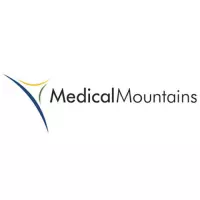
Tuttlingen/Berlin – Whether surgical instruments, orthopedic products or visual and hearing aids: Many medical devices are already being taken off the market as a result of the new EU regulation for medical devices, and numerous others will disappear by 2024 at the latest. The variety of products in Europe threatens to become smaller, in some cases no alternatives can be found on the market. This is the result of a joint survey by the Association of German Chambers of Industry and Commerce (DIHK), MedicalMountains GmbH and the German industry association SPECTARIS, for which 378 manufacturers of medical devices submitted their answers after the EU MDR came into force.
The MDR has been binding for manufacturers of medical devices in the EU since May 26 last year. They have replaced decades-established processes of placing and making medical devices available on the market.
"The results of the survey show that the MDR is not practical for manufacturers of medical devices in many areas," says Martin Leonhard, Chairman of Medical Technology at SPECTARIS. Numerous existing products are being withdrawn from the market – in all of the 21 areas of application surveyed. In 16 application areas or product groups, at least half of the companies active in them are eliminating individual products, entire product lines or even entire ranges, such as in orthopedics or classic surgical instruments. "However, if certain niche products for medical care are no longer available, this could lead to an increased use of products that are not approved for this purpose," Leonhard continues. "Quite apart from a difficult supply situation to which certain patient groups, such as children, are exposed."
The survey results also show negative effects of the MDR on the innovation activities of companies: "In almost every second company (46 percent) innovation projects are on hold due to the MDR," explains Deputy DIHK General Manager Achim Dercks. A fifth of the companies (19 percent) switch to other markets, such as the USA or Asia, for the initial approval of their medical technology innovations due to the MDR. “The corona pandemic has shown how crucial an efficient healthcare industry is, and not just from an economic point of view. Politicians must therefore pay more attention to maintaining the competitive and innovative power of the medical technology industry - this has positive effects on healthcare in the EU," emphasizes Dercks.
Furthermore, structural problems complicate the implementation of the complete MDR system. Cooperation with the so-called "Notified Bodies", which are necessary for market access for medical devices, is subject to considerable obstacles. The companies not only record significant cost increases averaging 100 percent when integrating a notified body, but also a significant lengthening of the assessment procedures, which more than doubles in time. As a result, the provision of the products is massively delayed. The high certification costs cause great difficulties, especially for small companies. "In addition to costs and duration, it is also the lack of capacities at the notified bodies that are generally cited as a major obstacle with regard to cooperation," says Julia Steckeler, Managing Director of MedicalMountains GmbH. “At the time of the survey, less than half of the originally planned 59 notified bodies across the EU (currently there are 28) had been appointed for the certification of products under the new law. This leads to substantial bottlenecks in the necessary renewal of the product certificates under the MDR and requires fast but also sustainable solutions that make the system permanently functional".
From the point of view of the industry, there is an urgent need for the MDR to be amended by the legislature. DIHK, MedicalMountains and SPECTARIS are therefore in favor of comprehensive recommendations for action: All old certificates that can be proven not to be transferred to the MDR by the deadline of May 26, 2024 should be extended unbureaucratically in order to continue to ensure the availability of these products. Politicians should also create pragmatic solutions that enable reliable implementation of the MDR. In addition to expanding the notified bodies, this also includes the best possible use of their resources. Furthermore, the development of special regulations for niche products and more pragmatic evaluation approaches for proven existing products are necessary, especially with a view to the required clinical data. The corresponding studies s





